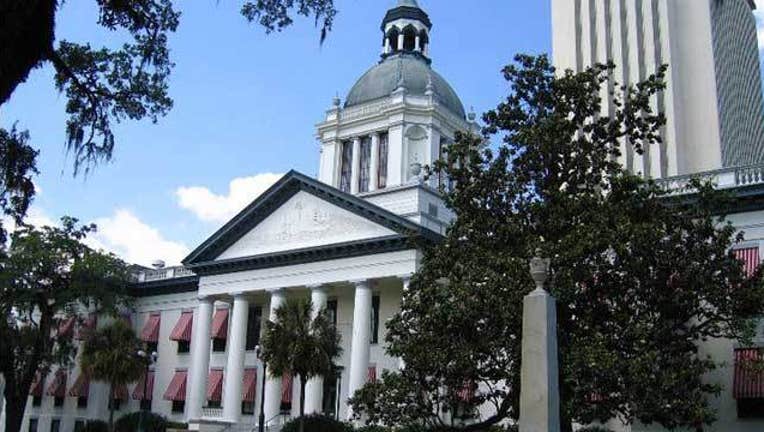Florida’s legislative session begins: A look at the big-ticket items

Florida State Capitol Building
TALLAHASSEE, Fla. - With the 2021 legislative session kicking off on Monday, the next two months will be extremely busy as Florida lawmakers have a lot to tackle. Over the next 60 days, they will take a closer look at the state budget, make changes to laws and pass new ones.
Lawmakers have been meeting since November in preparation for this session which had brought to light many of the topics they plan to cover over the next two months.
Aside from the state budget, lawmakers plan to take a closer look at educational programs and the vote-by-mail process. They will also discuss what measures can be taken to further protect the Everglades, while also addressing Florida’s no-fault auto insurance system.
However, on Monday, the House Committee plans to hit the ground running by addressing a bill regarding censorship on social media. The bill stems from Twitter and Facebook’s decision to block former President Donald Trump from their platforms following the attack on the Capitol.

DeSantis proposes changes to vote-by-mail procedures
DeSantis’ proposals echo issues that Republicans focused on last year as former President Donald Trump lost to Democrat Joe Biden and as Trump unsuccessfully challenged election results in several states.
READ: DeSantis pushes for election changes, including vote-by-mail procedures
Governor Ron DeSantis, along with fellow Republican lawmakers, want to make sure that large tech companies are not able to block users from their platform in an attempt to censor them. The new bill would pave the way for lawsuits to be filed in the event that someone is banned from a large tech organization.
The bill would specifically target large tech organizations, meaning companies that make at least $100 million gross revenue annually or platforms and have at least 100 million users.
The bill would also make it clear to large tech companies that they are not allowed to ban political candidates. If they do, they would face a daily fine of $100,000 until that candidate’s platform is restored.

Florida lawmakers target social media censorship
In a politically charged issue that has become a rallying cry for Gov. Ron DeSantis and many other Republicans, a House committee Tuesday will take up a proposal that targets large social-media companies that block users from their platforms.
MORE: Florida to target social media companies for blocking individual users
Another major issue that will be addressed over the next 60 days has to do with financial aid and scholarships given to students attending public colleges or universities in Florida. Lawmakers on both sides of the aisle have made it clear that they have some very strong opinions when it comes to this topic.
The proposed bill would specifically restrict financial aid for students who pursue degree fields that don’t lead directly to employment. This means for students majoring in art, history or English majors, they might not receive the same financial aid as those who are working towards a degree in the healthcare industry or other job fields that have more openings.
The bill would also make changes to Florida’s Bright Futures Scholarship by reducing scholarship credits for students who succeeded in taking college level classes in high school. It would also give lawmakers the power to adjust how much the Bright Futures Scholarship could cover in the future.
While the proposed bill has been met with opposition from Democratic lawmakers, both the Senate President and the Speaker of the House currently back the bill.

Florida bill would limit financial for certain student majors
State lawmakers have filed a proposal that could limit funding for some students based on what they are studying.
READ: Florida lawmaker files bill that would cut tuition aid for degrees that don't 'lead to jobs'
Another hot-button issue that will be addressed over the next two months has to do with Governor DeSantis’s anti-riot bill.
The bill would seek to increase fines and penalties associated with violent protests. DeSantis proposed this bill following the protests that stemmed from George Floyd’s death over the summer.
PREVIOUS: Florida governor introduces legislation with harsh penalties for disorderly assemblies
While the governor recognized that protests in Florida were largely peaceful, he wants the bill to go into effect in order to combat and prevent the destructive riots that were seen in many other cities across the U.S.
The proposed bill would also create new crimes associated with mobs or attacks on law enforcement. Additionally, the legislation would make it hard for cities and communities to cut law enforcement spending which is something that many cities attempted to do following the summer‘s protests.
READ: Activists complain protest legislation would limit free speech
The current version of the anti-riot proposal would also create a new offense of "mob intimidation," while also enhancing penalties for defacing public monuments. It would make it a crime to destroy memorials and require mandatory restitution for the full cost of repairs or replacement.
Not everyone is on board with this proposed bill. Many Democrat lawmakers stated it’s unfair and also unnecessary and have vowed to make sure the bill does not pass.

